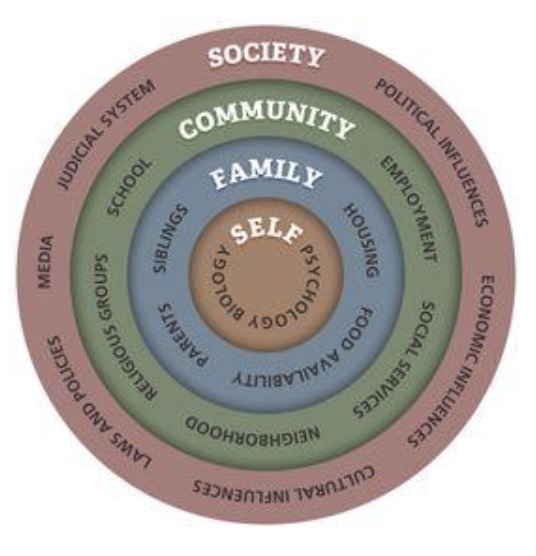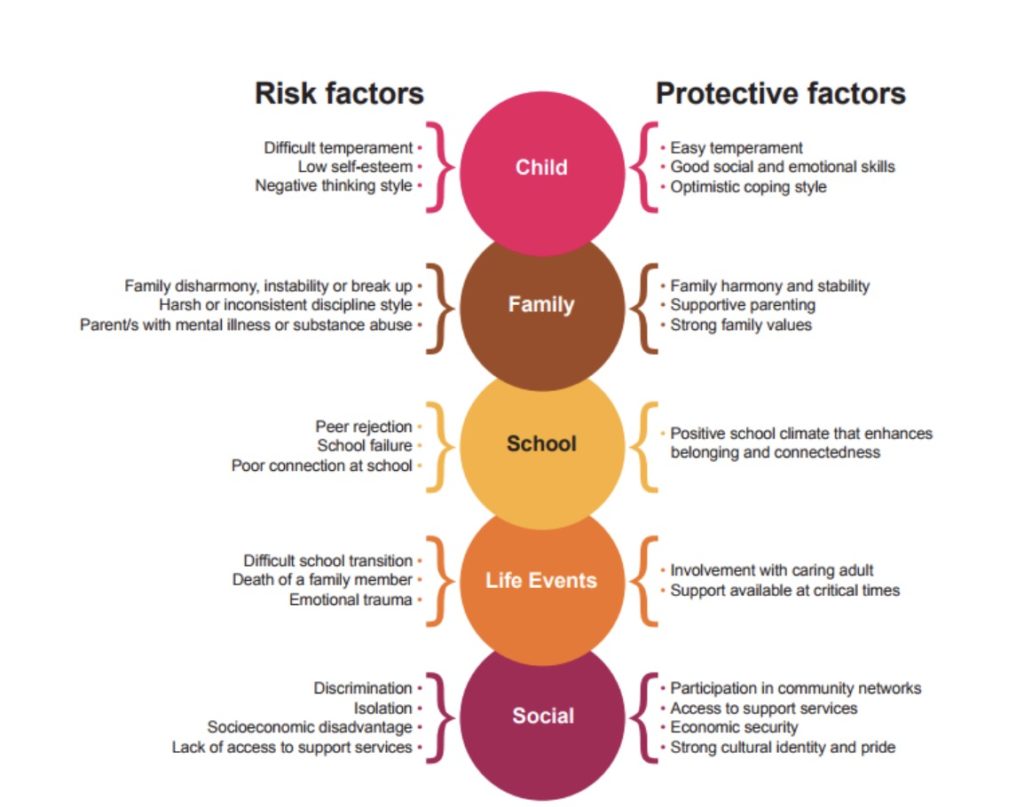The Biopsychosocial Model of Health offers a lens through which mental health practitioners may assess the needs of their clients. This concept suggests that an individual’s mental health consists of biological, social, and psychological factors (Kidsmatter). To achieve positive mental health, all three facets must be in balance. Good social skills, positive relationships with family, friends, and peers, and strong coping mechanisms are all key to maintaining this balance. These tools develop in children over time resulting in a steady acquisition of new skills as they mature.
Active nurturing by parents has been shown to increase positive outcomes for their children. In fact, when kids are shown love and support, they demonstrate a more balanced mental health profile than those who lack the same (Kidsmatter). Risk and protective factors also play a role in children’s mental health (Kidsmatter). These are situational elements that may positively or negatively skew an individual’s delicate mental health balance, dependent on the circumstances surrounding them. The first graphic below indicates how risk and protective factors can influence children. The self is in the center because it is also influenced by the family, community, and society that surround it. The second graphic further exemplifies how children can be impacted by those that surround them by depicting the risk and protective factors that are involved. For example, children can be impacted by their families if there is harmony or disharmony. Harmony is an example of a protective factor and disharmony is an example of a risk factor. The presence of a risk or protective factor does not guarantee that your child is at risk or protected from mental health imbalance, but it increases the significance. This can be seen in the charts below (Kidsmatter; Kearney, 2015):


Despite this, there are some instances where regardless of the nurturing that a child receives, they may experience a mental health imbalance due to difficulties within their individual nature. For instance, the child may have more difficulty expressing and coping with their emotions, and thus, may have a difficult time adapting to new and different situations.
Early detection of children’s mental health difficulties is key. This offers parents the opportunity to seek out the most appropriate help for their child. Therapeutic family support can aid parents in their efforts to increase protective factors in their child’s life. Families who find effective resolutions for their child’s mental health challenges early, may reduce the likelihood of negative effects (Kidsmentalhealth, 2009).
If you or your child is in need of support, contact the Guidance Center at 516-626-1971. Our trained clinicians can assist your family in setting your child up for successful emotional regulation throughout their life.
How mental health difficulties affect older children (primary years). (n.d.). Retrieved June 28, 2017, from https://www.kidsmatter.edu.au/families/about-mental-health/should-i-be-concerned/how-mental-health-difficulties-affect-children
Children Mental Health. (2009). Retrieved June 28, 2017, from http://kidsmentalhealth.org/
Kearney, B. (2015, January 21). Youth Development. Retrieved June 28, 2017, from https://www.pinterest.com/pin/502151427177487993
















